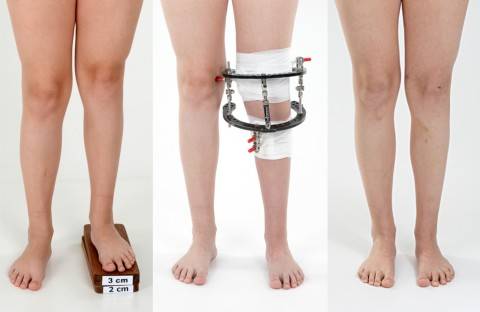If you’re thinking about getting limb lengthening surgery abroad, you’re probably feeling a mix of curiosity, excitement, and nerves. And that’s totally normal. This is a big step — not just medically, but emotionally and financially too.
The good news? With the right information and preparation, you can make smart, confident decisions every step of the way. Here’s how to start.
Define Your Goals and Expectations
Before anything else, get clear on your “why.” Are you doing this to increase your height? Fix a leg length discrepancy? Correct a past injury?
Each reason leads to a different type of surgery and recovery process. This clarity will help guide every choice you make moving forward — from which country to go to, to which surgeon you’ll trust.
It’s also important to keep your expectations realistic. Limb lengthening takes time, patience, and a willingness to commit to rehab.
Learn the Basics of the Procedure
Limb lengthening surgery isn’t just a one-day event — it’s a journey. It usually involves breaking the bone (commonly the femur or tibia) and slowly separating it with a device that encourages new bone to grow in the gap.
This process takes several months and requires regular physical therapy. It can also be painful at times. Understanding all of this upfront helps you prepare mentally and physically for what’s ahead.
Explore the Best Countries for Surgery
Certain countries have earned a reputation for high-quality limb lengthening procedures. These include Turkey, Germany, India, and South Korea.
Each has its pros:
- Turkey offers advanced technology at competitive prices.
- Germany is known for strict safety standards and expert care.
- India combines affordability with experienced surgeons.
- South Korea focuses on cosmetic limb lengthening and innovative techniques.
Think about what matters most to you — whether it’s budget, recovery support, or access to English-speaking staff — and use that to narrow your options.
Find Surgeons You Can Trust
Finding a qualified, trustworthy surgeon is the most important step. Look for:
- Board certifications
- Specialization in limb lengthening
- Patient success stories
- Transparent communication
Search beyond the clinic’s own website. Check forums, YouTube testimonials, and independent review platforms. Be cautious of anyone making promises that sound too good to be true or pressuring you to book quickly.
Understand the True Cost
When you hear the price of surgery, dig deeper. What does that number include?
Make sure to factor in:
- Pre-op consultations
- Hospital stay
- Implants or devices used
- Medication and pain relief
- Flights and hotel
- Physical therapy
- Post-op follow-ups
A quote that looks low upfront might leave out essential care you’ll have to pay for later. Be thorough with your questions so there are no surprises.
Book Consultations to Compare Clinics
Once you’ve found a few clinics that feel promising, book virtual consultations. These are your chance to ask questions, understand the surgeon’s approach, and get a feel for the team.
Some questions to ask:
- How many surgeries like this have you performed?
- What technique do you use — internal or external fixation?
- What’s the average recovery time?
- What support is available post-surgery?
- Do you help with accommodation or local transportation?
Trust your instincts during these calls. A clinic’s professionalism and transparency say a lot.
Get Your Travel Plans in Order
Before booking your surgery, make sure you understand the travel requirements for your destination country.
You might need a medical visa. Some countries also require certain vaccinations or health screenings. Make sure your passport is valid for at least six months past your intended return date.
Also, look into travel insurance that covers medical procedures — just in case.
Plan for Your Recovery
This isn’t a quick in-and-out procedure. Most people stay abroad for several weeks or even months to recover.
You’ll likely need:
- Pain management
- Regular follow-ups
- Physical therapy
- Help with daily tasks while your mobility is limited
Ask the clinic if they offer recovery accommodations or if they can recommend trusted providers nearby. Being comfortable during this period will make a big difference in your overall experience.
Line Up Aftercare and Support
Whether it’s a close friend, family member, or local caregiver, having someone with you during recovery is a huge help.
If you’re going solo, check if the clinic can arrange support services or mobility aids. You’ll need help moving around, preparing meals, and attending appointments — especially in the first few weeks.
Also, make a plan for aftercare once you’re back home. Will your local doctor be able to support you? Can you access a physiotherapist familiar with this type of recovery? You want a clear plan in place before you leave.
Be Aware of the Legal Side
Surgery abroad comes with some legal considerations. Know your rights as a patient in that country.
Ask:
- What happens if there are complications after I return home?
- Will I receive all medical records and imaging?
- Is there a clear informed consent process?
- Are there any patient advocacy options?
Also, check with your local health system to see if they’ll help with post-op care — some won’t if the surgery was done overseas.
Double-Check Everything Before You Commit
Before you lock in your decision, review everything:
- Have you researched the procedure and recovery?
- Do you fully understand the cost?
- Have you spoken with the surgeon and felt confident?
- Is your travel plan solid?
- Do you have a backup plan in case things don’t go as expected?
Don’t let anyone rush you into this. A reputable clinic will respect your timeline and won’t use pressure tactics.
Getting limb lengthening surgery abroad is a life-altering decision. But with the right information, preparation, and support, it can be a safe and successful one.
Start by getting informed. Ask questions. Do your research. And above all — listen to your gut. You deserve the best care, wherever in the world you find it.



































